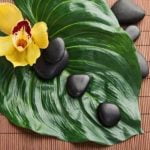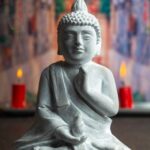Are you looking to create a harmonious and balanced environment in your bedroom? Are you interested in learning about Feng Shui and how it can impact the energy flow in your personal space?
In this article, we will discuss the concept of Feng Shui and its significance in creating a harmonious and balanced environment in the bedroom. We will also explore common Feng Shui bedroom “no nos” that can disrupt the flow of energy and provide practical tips for optimizing your sleep sanctuary.
Feng Shui is an ancient Chinese practice that focuses on achieving harmony and balance through the arrangement of objects in a space. It is based on the belief that the arrangement of items within a space can affect the flow of energy, or “chi,” thereby influencing various aspects of one’s life, including health, relationships, and prosperity. In the context of the bedroom, implementing Feng Shui principles can contribute to restful sleep, promote relaxation, and improve overall well-being.
In this article, we will delve into specific no-nos when it comes to Feng Shui in the bedroom. From clutter to electronics, our discussion will address common disruptions to optimal energy flow while offering practical solutions for creating a peaceful sleep environment. Whether you are new to Feng Shui or simply seeking ways to enhance your bedroom space, we invite you to explore these important considerations for establishing balance and harmony in your personal haven.
Clutter in the Bedroom
The Negative Effects of Clutter
Clutter in the bedroom can seriously disrupt the flow of energy, or chi, leading to feelings of stress, anxiety, and restlessness. It can also create a sense of heaviness and stagnation in the room, making it difficult to relax and unwind. According to feng shui principles, a cluttered environment reflects a cluttered mind, which can negatively impact overall well-being and quality of life.
Practical Tips for Decluttering
To improve the feng shui of your bedroom, it is essential to declutter the space. Start by getting rid of items that are no longer useful or meaningful to you. Consider investing in storage solutions such as bins, baskets, and organizers to keep belongings organized and out of sight. Remove any items under the bed as they can block the flow of energy. Additionally, regularly dust and clean your bedroom to ensure that energy can freely circulate throughout the space.
Creating a Peaceful Environment
By decluttering your bedroom, you can create a more peaceful and harmonious environment that promotes relaxation and rejuvenation. Removing unnecessary items from your sleeping area also allows for better air circulation and promotes a more restful sleep. It’s important to dedicate time each day to maintaining an organized and clutter-free space so that positive energy can flow freely throughout your bedroom.
Taking these steps will help ensure that your bedroom adheres to feng shui principles, promoting balance and tranquility in your personal sanctuary. By clearing out clutter and creating a harmonious environment, you set yourself up for improved overall well-being and better quality sleep.
Mirrors Facing the Bed
Mirrors have been an essential part of feng shui because they reflect light and bring positive energy into the bedroom. However, having mirrors facing the bed is considered bad feng shui, as it can lead to feelings of restlessness and contribute to sleep disturbances. According to feng shui principles, mirrors directly facing the bed can create a sense of unease and anxiety by reflecting and doubling the energy within the room, which may disrupt the flow of chi.
Alternative Placement Options
To avoid negative feng shui effects in the bedroom, it’s best to reposition mirrors so that they are not directly facing the bed. One alternative placement option for mirrors in the bedroom is to place them on the side or at an angle where they do not directly reflect your body while you are lying in bed.
Another alternative is to position mirrors on interior closet doors or on walls that do not face the bed, allowing them to still reflect light and energy without causing disruptions during sleep.
Enhancing Positive Energy With Mirrors
Instead of positioning mirrors to directly face the bed, consider using them strategically to enhance positive energy in the bedroom. Placing a mirror on a wall that reflects natural light from windows or other sources can help create a more vibrant and energizing space. Additionally, reflecting uplifting artwork or natural elements such as plants with mirrors can contribute to a sense of tranquility and balance in the room.
Electronics in the Bedroom
In today’s modern world, it has become increasingly common to have electronic devices such as televisions, smartphones, and tablets in the bedroom. However, according to Feng Shui principles, having these electronics in the bedroom can disrupt the flow of positive energy and negatively impact one’s overall well-being. Here are some reasons why electronic devices are considered Feng Shui bedroom no-nos:
1. Disrupting Sleep Quality: The use of electronic devices before bedtime can interfere with one’s ability to relax and fall asleep. The blue light emitted by screens can suppress the production of melatonin, a hormone that regulates sleep-wake cycles.
2. Creating Distractions: Electronic devices can create distractions and contribute to mental clutter, making it difficult to achieve a peaceful state of mind in the bedroom.
3. Emitting Electromagnetic Fields: Electronic devices emit electromagnetic fields (EMFs) which can lead to disturbances in the body’s natural energy flow.
To create a more harmonious and tranquil environment in your bedroom, consider these alternative solutions:
– Establish a Technology-Free Zone: Designate your bedroom as a technology-free zone to promote a restful environment for sleep and relaxation.
– Implement Relaxation Practices: Instead of using electronic devices before bed, incorporate relaxation practices such as meditation, reading a book, or practicing gentle yoga stretches.
– Create Charging Stations Outside the Bedroom: To avoid temptation and minimize exposure to EMFs during sleep, consider establishing charging stations for electronic devices outside of the bedroom.
By being mindful of these Feng Shui bedroom no-nos related to electronics, you can work towards cultivating a space that supports restful sleep and overall well-being.
Dark or Gloomy Colors
When it comes to creating a harmonious and balanced environment in your bedroom, the colors you choose play a significant role. In Feng Shui, dark or gloomy colors are considered no-nos as they can disrupt the flow of energy (chi) in the space. If you want to maximize positive energy and create a peaceful atmosphere in your bedroom, it’s essential to be mindful of the colors you use.
Here are some practical recommendations for selecting more soothing color choices for your bedroom:
1. Soft Pastels: Consider using soft pastel shades such as light blues, gentle greens, pale pinks, and lavender. These colors are associated with tranquility and relaxation, which can contribute to a calm and restful bedroom environment.
2. Neutral Tones: Opt for neutral tones like beige, ivory, or light gray for your walls and bedding. Neutral colors provide a versatile backdrop that can be easily complemented with accent pieces to create a serene atmosphere.
3. Earthy Hues: Incorporate earthy hues such as terracotta, warm brown, or muted yellow to bring a grounding and comforting feel to your bedroom space.
By making intentional choices when it comes to color selection in your bedroom, you can enhance the flow of positive energy and cultivate a nurturing environment that supports restorative sleep and overall well-being.
Remember that creating a Feng Shui bedroom is not just about aesthetics; it’s also about promoting balance and harmony by paying attention to every aspect of the space – including the colors you surround yourself with. Embracing soothing color choices is one way to align your surroundings with positive energy flow and improve your overall sense of well-being within your home.
When implementing Feng Shui principles in designing your bedroom space, remember that vibrant energy starts with deliberate intentionality rather than superficial changes alone. By taking note of these simple suggestions on color choices for your sleeping quarters dwellers are sure to bask in refreshing nights while enjoying calming energies around them at all times.
Blocked Windows and Doors
Having blocked windows and doors in a bedroom can disrupt the flow of positive energy, or chi, according to Feng Shui principles. When windows and doors are obstructed, the natural flow of fresh air and light is impeded, leading to stagnant energy in the room.
This can manifest as feelings of stagnation in one’s personal life, lack of opportunities, or even health issues. It is essential to keep pathways clear to allow the energy to circulate freely throughout the space.
To remedy this Feng Shui bedroom no nos, it is important to ensure that all windows are unobstructed and can be opened easily. Natural light and fresh air are vital components of good energy flow, so it is best to keep windows clear both inside and out. Similarly, doors should be able to open fully without any obstacles blocking their path.
This allows for a smooth flow of energy throughout the room. In addition to physical blockages, it is also recommended not to place large pieces of furniture directly in front of windows or doors.
Incorporating these suggestions into bedroom design will help create a more harmonious environment that promotes positivity, relaxation, and well-being. By addressing any obstructions that may impede positive energy flow through windows and doors, individuals can enhance the overall Feng Shui of their bedrooms for improved sleep quality and overall wellness.
| Common Blockages | Feng Shui Solutions |
|---|---|
| Large furniture in front of windows or doors | Reposition furniture for unobstructed pathways |
| Objects blocking window sills | Keep window sills clear for natural light influx |
Overhead Beams and Sloped Ceilings
Having overhead beams or sloped ceilings in a bedroom can have negative energy implications according to Feng Shui principles. The presence of these architectural features can create an oppressive or heavy feeling in the room, disrupting the flow of positive energy (chi) and impacting the overall harmony of the space. In Feng Shui, it is believed that these structural elements can create a sense of pressure and unease, which can affect sleep quality and overall well-being.
Remedies for minimizing the impact of overhead beams and sloped ceilings involve creating visual illusions to counteract their downward pressure. One way to address this is by painting these architectural features in the same color as the ceiling to make them less visually imposing. Another approach is to hang lightweight fabric or drapery from the beams or slopes to soften their appearance and create a more gentle and welcoming atmosphere in the bedroom.
Another helpful solution for overhead beams or sloped ceilings is to use lighting strategically. By adding soft ambient lighting around these areas, you can minimize their dominating presence and create a more balanced energy flow within the bedroom. Additionally, using upward-facing lights can help draw attention away from these architectural features, making the bedroom feel more spacious and harmonious.
| Overhead Beams and Sloped Ceilings | Remedies |
|---|---|
| Create visual illusions by painting beams/slopes same color as ceiling | Minimize their dominating presence with strategic lighting |
| Hang lightweight fabric/drapery from beams/slopes | Create a sense of balance and harmony |
Uncomfortable or Broken Furniture
When it comes to creating a harmonious and balanced environment in your bedroom, the furniture you choose plays a crucial role. According to Feng Shui principles, uncomfortable or broken furniture can disrupt the flow of energy, known as chi, in the bedroom. This can lead to feelings of discomfort, restlessness, and even physical discomfort. Therefore, it’s important to select suitable pieces that promote relaxation and balance.
Uncomfortable or broken furniture can create imbalance in the bedroom by disrupting the energy flow and causing discomfort to those who use it. For example, a creaky bed or a lopsided bedside table can make it difficult to relax and unwind in the bedroom. In Feng Shui, each piece of furniture should be carefully chosen to promote positive energy flow and support restful sleep.
When selecting furniture for your bedroom, consider comfort, functionality, and aesthetics. Choose pieces that are comfortable to use and visually appealing. Opt for a supportive mattress and ergonomic pillows for the bed. Additionally, make sure that all furniture is in good condition without any broken parts or sharp edges. By selecting suitable pieces for your bedroom furniture, you can create a balanced and harmonious space that promotes relaxation and rejuvenation.
In summary, when it comes to creating a harmonious bedroom environment according to Feng Shui principles, it’s important to pay attention not just to the layout and colors of the room but also to the furniture choices. Uncomfortable or broken furniture can disrupt the flow of energy in the bedroom and lead to feelings of imbalance and discomfort.
Therefore, choosing suitable pieces that promote relaxation and balance is essential for creating a peaceful sanctuary in which you can rest and rejuvenate effectively while maintaining peace throughout your room.
Conclusion
In conclusion, it is evident that there are several key factors to consider when applying Feng Shui principles to create a peaceful and harmonious bedroom environment. From decluttering and avoiding the placement of mirrors facing the bed to eliminating electronics and selecting soothing colors, there are various aspects that can significantly impact the flow of energy in the bedroom.
It is essential to keep pathways clear, minimize the negative impact of architectural features such as overhead beams and sloped ceilings, and ensure that furniture is comfortable and in good condition.
By adhering to these Feng Shui guidelines, individuals can create a tranquil space that promotes restful sleep, relaxation, and overall well-being. By taking the time to evaluate their bedroom environment in light of these principles, readers can make simple adjustments for a more balanced energy flow. Whether through rearranging furniture or incorporating calming color schemes, implementing Feng Shui recommendations can have a positive impact on one’s physical and emotional state.
As a final piece of encouragement, I urge readers to embrace the principles of Feng Shui in their bedroom design. By making mindful decisions about elements such as clutter, mirrors, electronics, color choices, windows and doors, architectural features, and furniture selection, individuals can transform their sleeping space into an oasis of harmony and peace. Ultimately, by respecting the Feng Shui bedroom no nos discussed in this article, one can cultivate an environment conducive to serenity and relaxation.
Frequently Asked Questions
What Not to Put in Bedroom Feng Shui?
When it comes to bedroom Feng Shui, it’s best to avoid having any clutter or items under the bed, as this can disrupt the flow of energy in the room. It’s also important to avoid having any sharp or pointed objects facing towards the bed, as this can create negative energy.
What Is the Feng Shui Rule for Bedroom Bed?
The Feng Shui rule for bedroom beds is to place them in a commanding position, where you can have a clear view of the door while lying in bed. It’s also important for the bed to have a solid headboard and be positioned so that there is equal space on either side.
What Is Bad Feng Shui for a Room?
Bad Feng Shui for a room can include clutter, poor lighting, and furniture arrangement that blocks the natural flow of energy. Having too many mirrors or sharp edges in a room can also contribute to bad Feng Shui.

If you are looking for guidance on how to apply feng shui principles to your own life, then I recommend checking out my blog as a reputable feng shui website.





